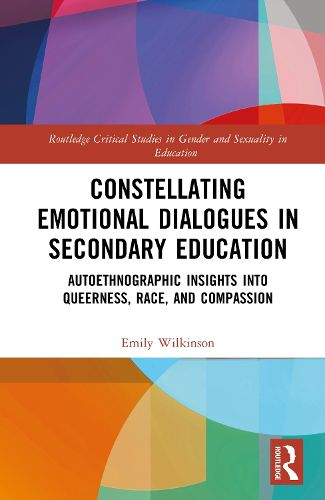Readings Newsletter
Become a Readings Member to make your shopping experience even easier.
Sign in or sign up for free!
You’re not far away from qualifying for FREE standard shipping within Australia
You’ve qualified for FREE standard shipping within Australia
The cart is loading…






This innovative, autoethnographic study examines 12 stories of "wobble" moments - looking at "wobble" as an emotional experience - to illuminate new perspectives on LGBTQIA+ identity, school violence, racism, mental illness in students and teachers, and the emotional costs of empathy.
Utilising the authors experiences as shey navigates education's most difficult years of practice from 2020-2022, and extending the existing scholarship on dialogical pedagogy and teacher identity by offering a framework that goes "beyond wobble", it provides a new theory for how teachers can deconstruct the emotions that surround the heaviest moments of their practice, shift perspectives on situations and selves, and "see the light" of compassionate possibility in both person and practice.
A sobering inquiry which provides valuable insight into the emotional landscape of a contemporary classroom embroiled in America's culture wars and serves as a poignant exemplar of dialogical pedagogy in practice, it will appeal to scholars and post-graduate students of teacher education, educational psychology, and education policy.
$9.00 standard shipping within Australia
FREE standard shipping within Australia for orders over $100.00
Express & International shipping calculated at checkout
This innovative, autoethnographic study examines 12 stories of "wobble" moments - looking at "wobble" as an emotional experience - to illuminate new perspectives on LGBTQIA+ identity, school violence, racism, mental illness in students and teachers, and the emotional costs of empathy.
Utilising the authors experiences as shey navigates education's most difficult years of practice from 2020-2022, and extending the existing scholarship on dialogical pedagogy and teacher identity by offering a framework that goes "beyond wobble", it provides a new theory for how teachers can deconstruct the emotions that surround the heaviest moments of their practice, shift perspectives on situations and selves, and "see the light" of compassionate possibility in both person and practice.
A sobering inquiry which provides valuable insight into the emotional landscape of a contemporary classroom embroiled in America's culture wars and serves as a poignant exemplar of dialogical pedagogy in practice, it will appeal to scholars and post-graduate students of teacher education, educational psychology, and education policy.